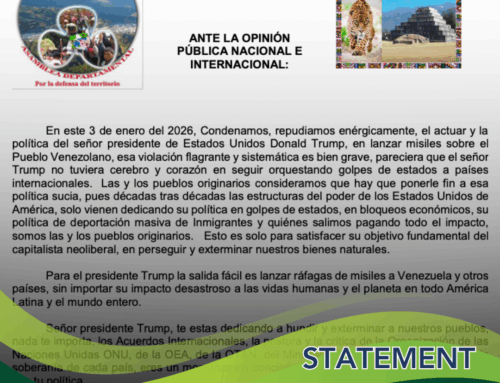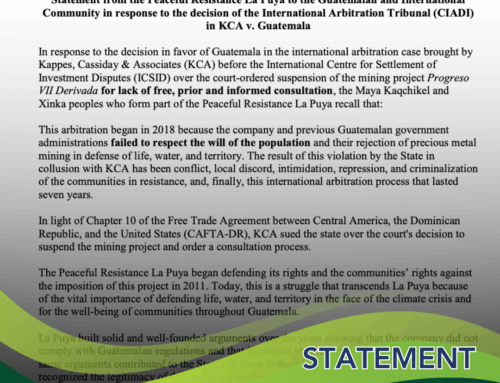For generations, indigenous communities in Guatemala have held consultations to make decisions on issues affecting their people and their lands. While the signing of the Peace Accords in 1996 facilitated the adoption of national laws and international agreements that recognized the particular rights of indigenous peoples, the post-conflict neoliberal economic model prioritized resource extraction — a practice fundamentally at odds with upholding these rights. Specifically, the 1997 Mining Law weakened oversight and lowered royalty rates for mining companies, and the 2005 Central American Free Trade Agreement further established foreign direct investment as a pillar of the Guatemalan economy.
Transnational mining and hydroelectric companies were given free rein to begin operations without the consent of impacted communities, and they quickly gained access to huge swaths of land in order to carry out resource exploration and exploitation activities. In a land mass comparable to Tennessee, over 360 mining licenses have been issued and more than 600 are pending.






Leave A Comment